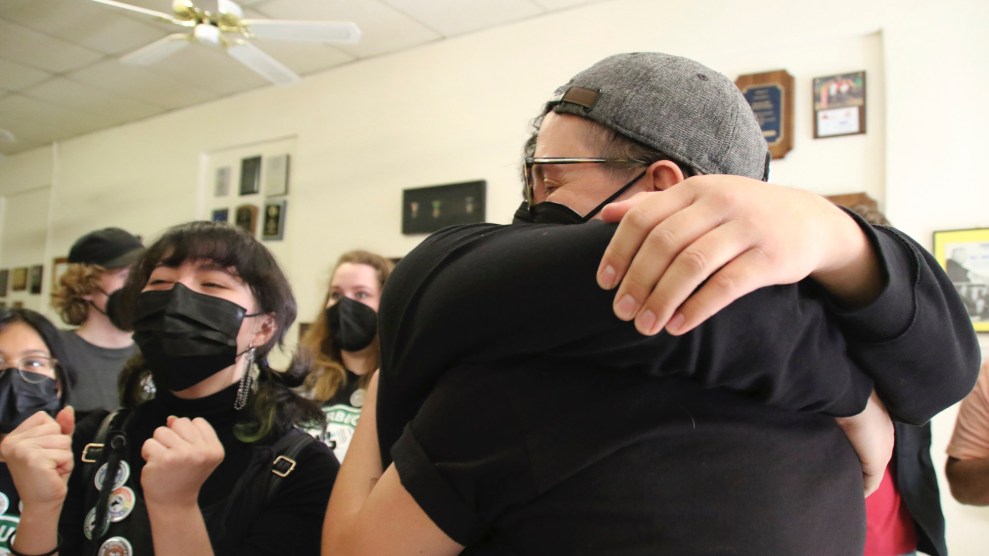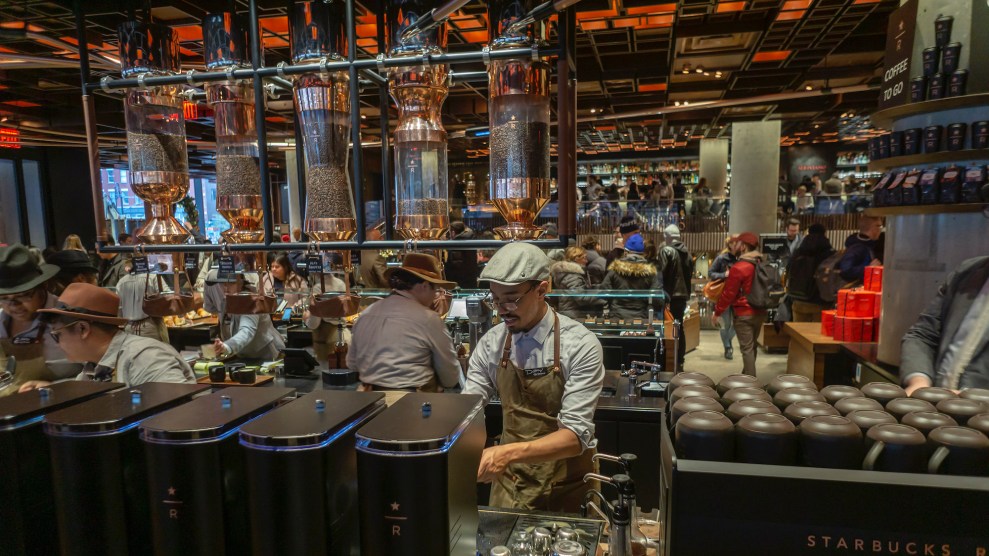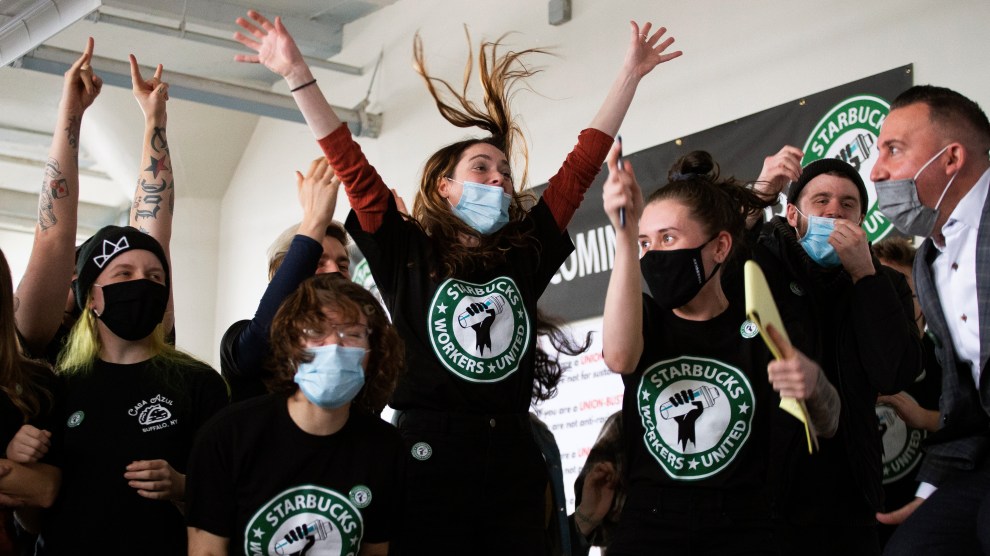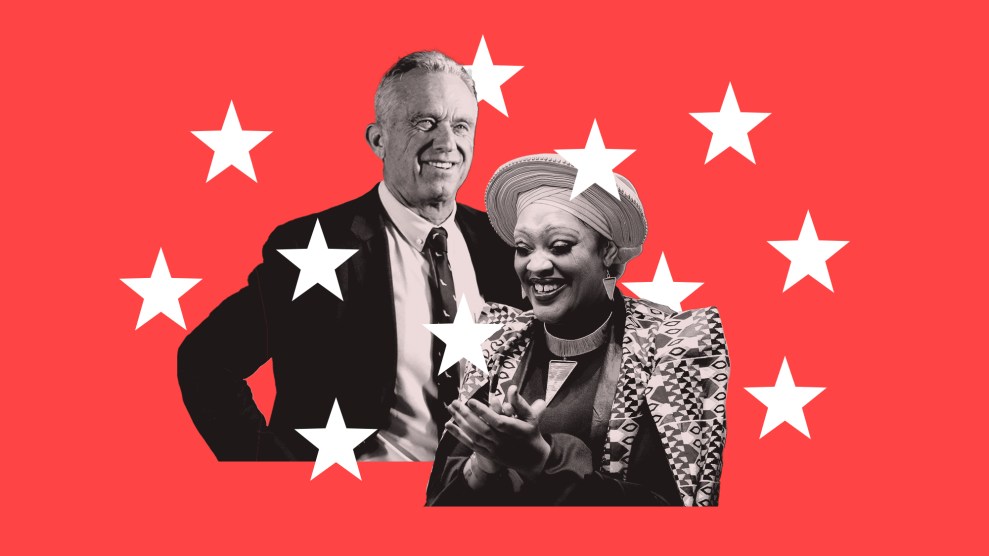
Starbucks Workers United members celebrate a victory after watching the union vote count in Mesa, Arizona, last month.Alexandra Buxbaum/AP
Starbucks workers at three more Buffalo-area stores voted to unionize on Wednesday afternoon. The votes were close. The union won by a 15-12 margin at two locations and a 8-7 margin at the third store.
Starbucks Workers United, an SEIU affiliate, has now won six of the seven elections that have been held since December. In total, workers at 126 Starbucks locations across dozens of states have petitioned for union representation.
After using progressive branding to become a $100 billion company, Starbucks has resorted to an aggressive union-busting campaigns to try to prevent its workers from organizing. In the lead up to Wednesday’s vote workers at the Depew, New York location said the company used aggressive tactics: scheduling pro-union workers for opening and closing shifts during the same week and subjecting employees to frequent surveillance from out-of-state managers.
Starbucks has taken their union busting campaign to a new level for the next 3 Buffalo stores preparing for a union election. They changed their strategy from playing the ‘nice guy’ to waging psychological warfare on partners. Here’s what’s going on at the Depew location:
— SBWorkersUnited (@SBWorkersUnited) December 14, 2021
The three Buffalo-area locations asked the National Labor Relations Board to hold union elections four months ago. Like at other locations, Starbucks responded by using lawyers from Littler Mendelson, a firm well known for its union-busting work, to delay the elections as the company tried to undermine support for unionization. That led to the votes at the three Buffalo-area locations being impounded last month. They were finally counted on Wednesday.
Colin Cochran, a barista at the Walden & Anderson store in Buffalo, said in a statement that Starbucks closed the location for two months and hired more than 20 new workers after workers petitioned for union representation. “They upended our store in every way, scared and divided partners, and demonized those of us who believe that we deserve better,” Cochran added. “And we still won.”
As I wrote last month, describing the expansion of the union drive to the company’s flagship stores, the pandemic and the initial victories at another Buffalo-area Starbucks locations in early December have been turning points for many of the company’s workers.
[Melissa Slabaugh’s] perspective shifted during the pandemic, when the Seattle Roastery ran on skeleton crews as colleagues got sick with Covid-19 and managers refused to reduce the store’s hours. She internalized how degrading it could be to hold one of the supposedly low-skilled positions that lead to being treated as dispensable. Then there’s the perennial frustration of working as a bartender at a place where customers are not allowed to tip via credit card. Sam LaGow was similarly excited to join the New York Roastery after a few years at a Starbucks off Union Square. The labor shortages and other stresses of working in food service during a pandemic got to him, too.
But for both, the idea of forming a union seemed impossible. Buffalo changed that. LaGow started seeing how unions could protect service workers, not just people in industries like construction. Slabaugh realized unions weren’t reserved for people like her mom, a teacher. Their colleagues, who skew young and left, were quickly coming to the same conclusion.

















